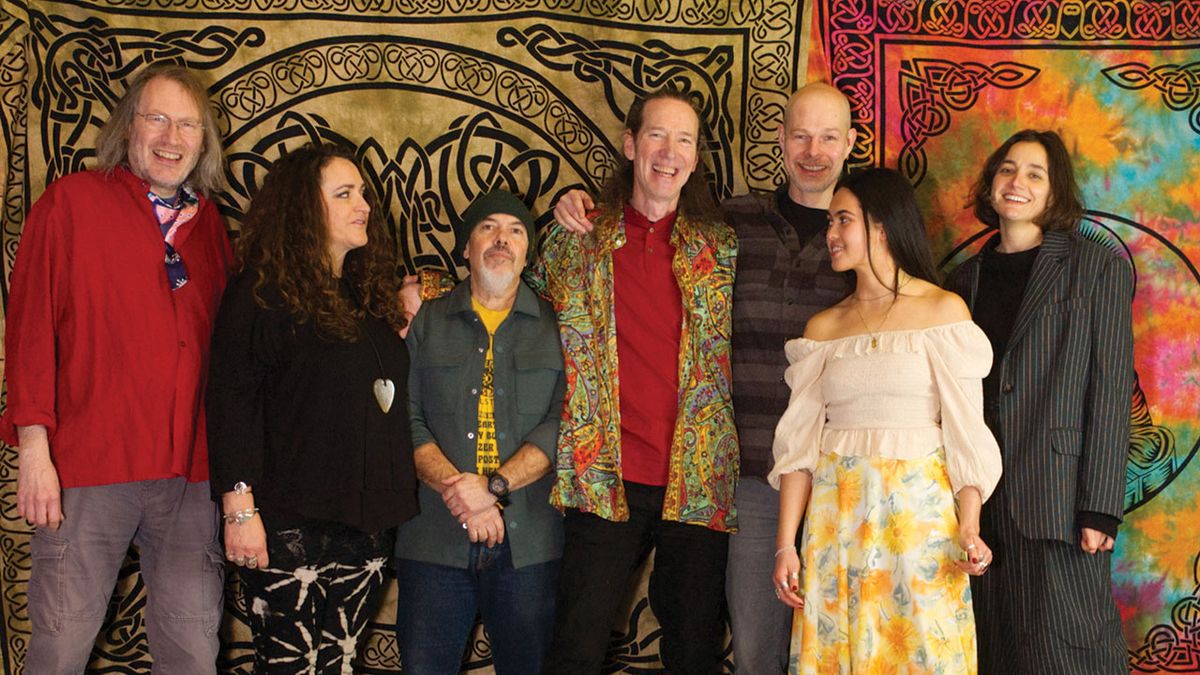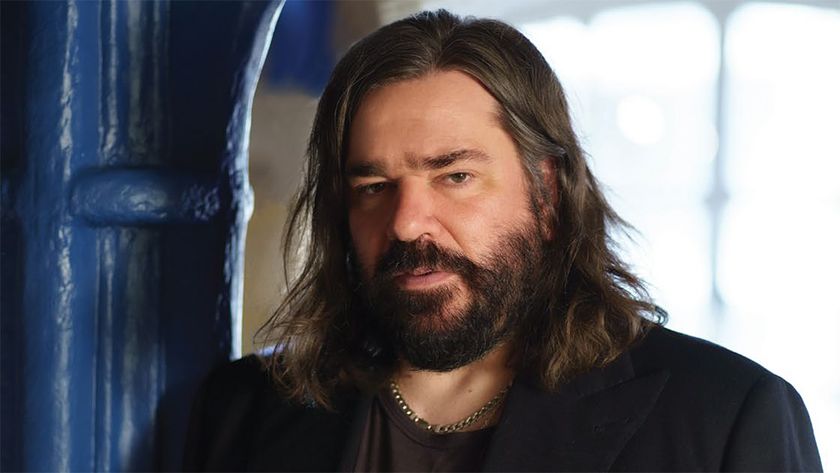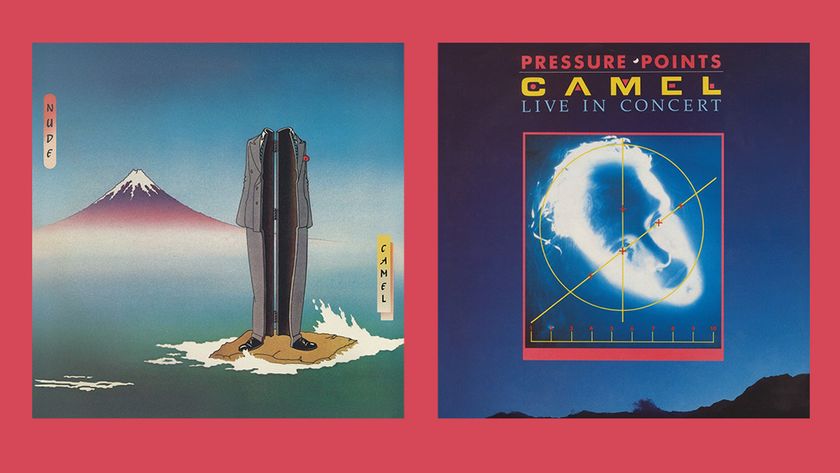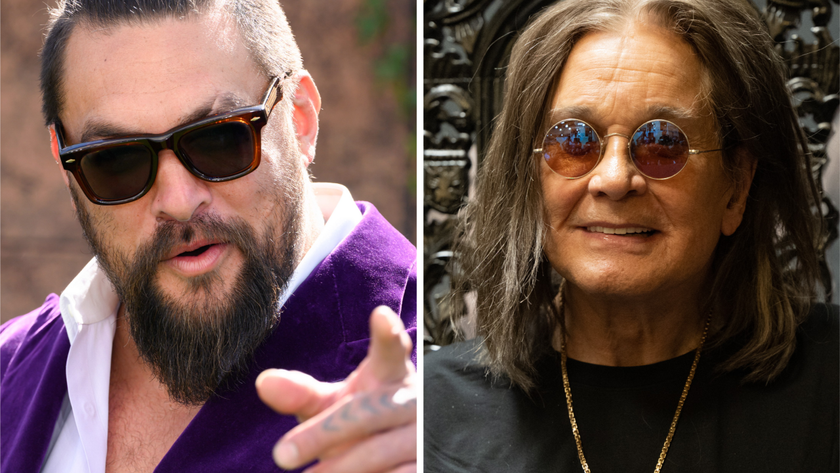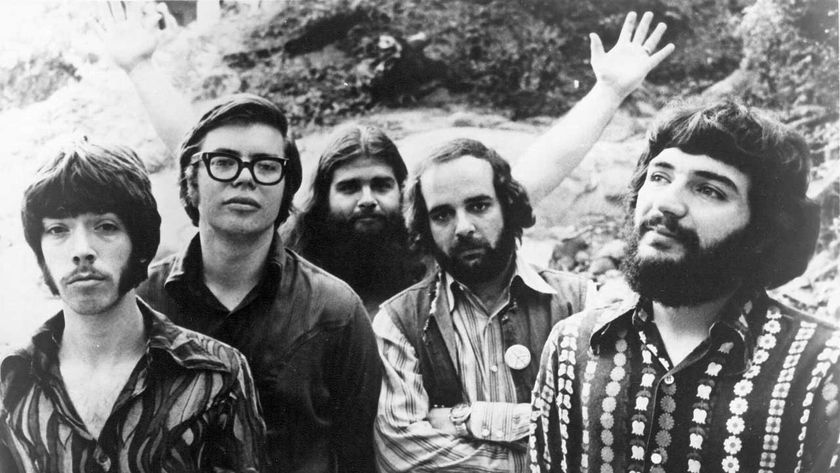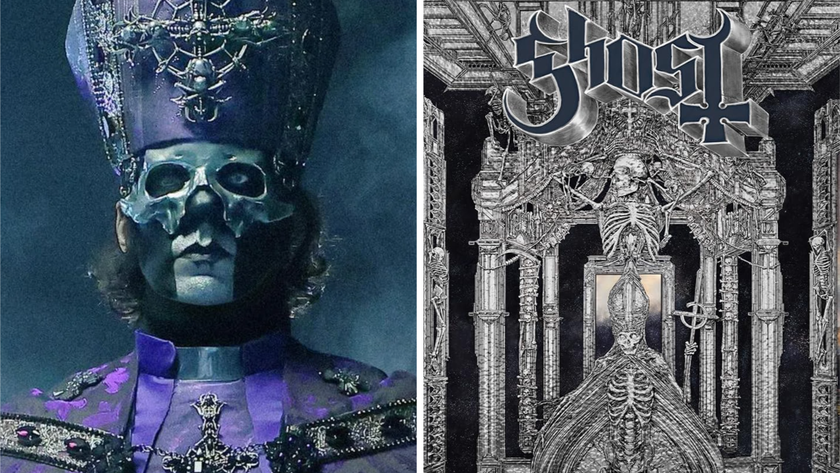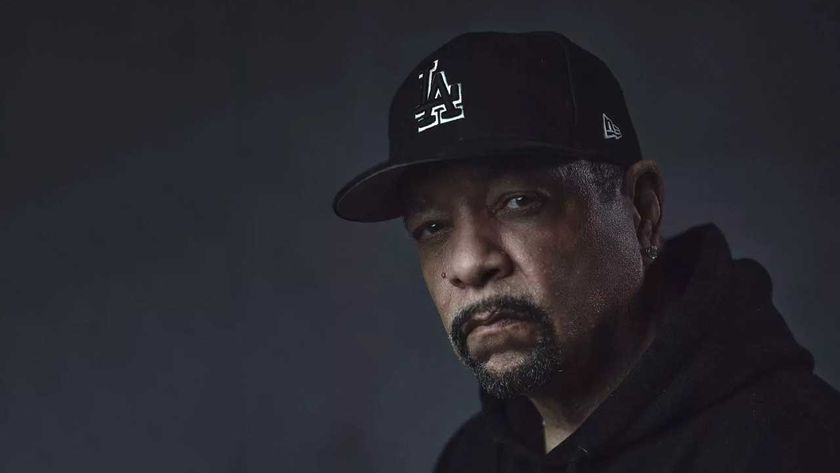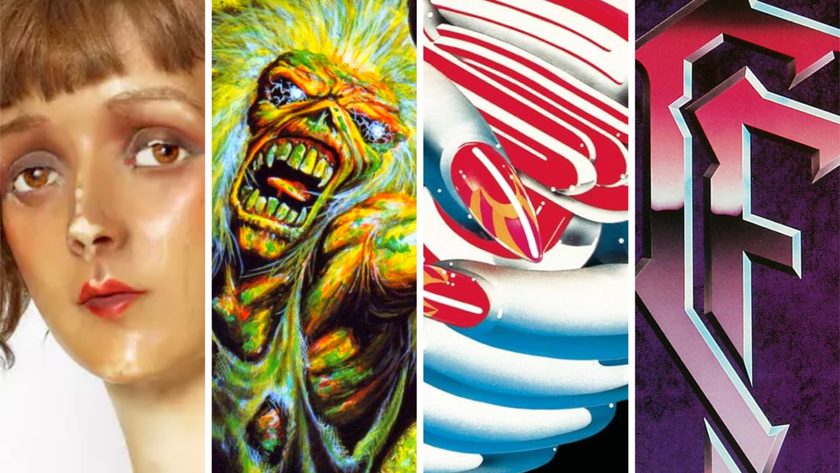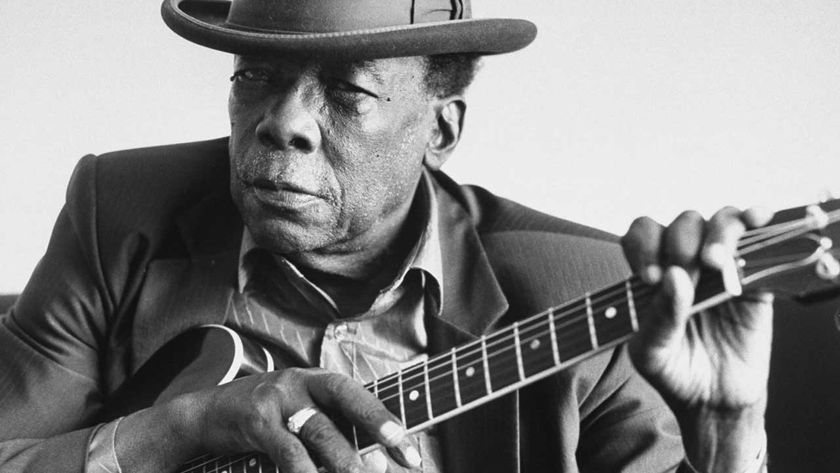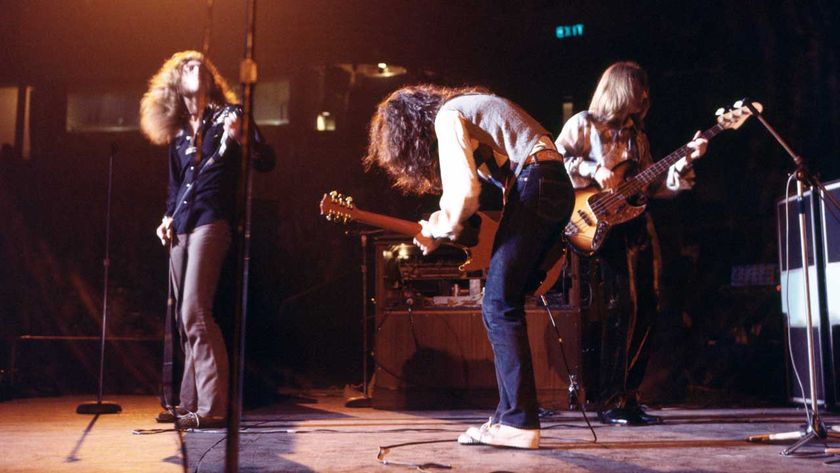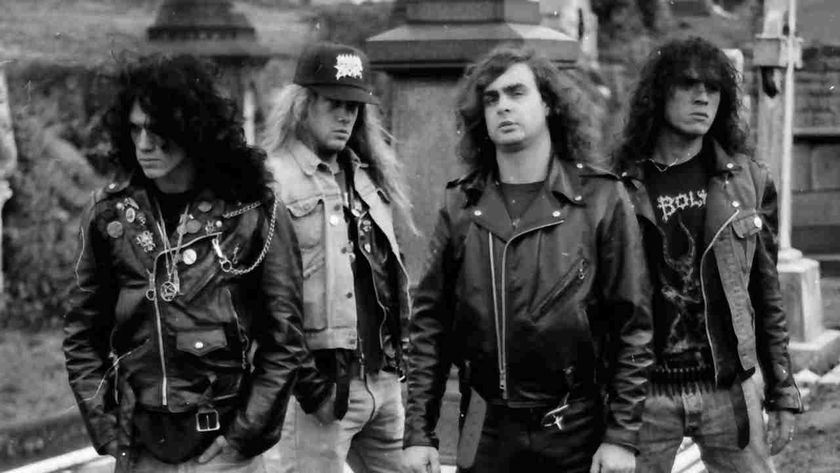On their 2023 release, Light Up, Solstice continued the trilogy they began on their 2020 comeback album, Sia. Prog spoke to founding member Andy Glass at the beginning of that year to find a man full of enthusiasm and eager to press on...
After 40 years, most bands’ creative conduits are starting to falter. Cue albums carelessly cobbled together with filler and releases that are pitiful imitations of earlier halcyon days. Yet Solstice appear to be regenerating with a musical vigour that’s surprising both their fanbase and band alike.
“It’s extraordinary and feels like a complete rebirth,” says guitarist and founding member Andy Glass. “It really feels like a new band. We had our heyday in the early 80s and we’ve just done the odd album ever since. But I kept it going here and there, so for this to be happening again is just amazing.”
Glass makes an astute point. Since their 1984 debut, Silent Dance, they’ve averaged a long-player every five years, with sporadic live appearances placing a tangible doubt on their commitment. But since 2020’s Sia, the desire to record and perform live has returned. This sudden burst of inspiration was ignited by the line-up changes that occurred in 2019, as Glass explains.
“I remember our keyboard player, Steve [McDaniel] asking what we were doing and what was happening,” he recalls. “The truth was that I was really lacking a creative partner, the sort of muse I had with [violinist] Marc Elton back in the day. I was disappointed with Prophecy [2013] and felt it was time to make a change. Getting Jess Holland involved on vocals really has changed the game; she’s a very fine musician and brings a lot to the table. She gets the music in a way that none of the other singers have since the days of [third vocalist] Sandy Leigh. Jess is full of ideas, really embraces the music and she gets what it’s about. So, for me, it’s a creative partnership again that hasn’t really existed since 1985. Plus, she’s a great singer and it turns out she’s amazing live too.”
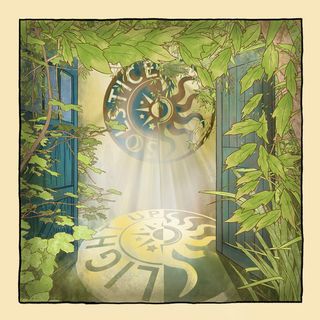
The freedom offered away from past lockdowns that blighted the writing session for Sia enabled a more collaborative, in-person writing process for their latest release, Light Up. Additionally, Solstice were able to perform many of the tracks live prior to recording, allowing them to iron out any niggles before setting them to record. It’s a notion that recalls the early 80s, when countless prog bands – including Solstice – were able to spend months honing tracks on the live circuit.
“Exactly, and that would be the ideal scenario for everyone,” agrees Glass. “On our first album, there was a big fight over what we were going to record because we had so much stuff. We had been playing them live for a couple of years at that point. With Sia, we recorded the whole album but Jess had never met the band. Now, we’ve had a couple of years of playing live together and working it out onstage. We could finally work together in the same space and people have remarked that the album has a more organic feel to it. It feels a bit like the band are playing in the room and that has made a difference. It’s been a really nice progression from Sia, really. The way it worked with both albums is that I’d put demos together and then the guys would work on parts. I’m not a keyboard player, so Steve very often gets a blank slate and just has to come up with ideas, with no real direction from me. I can programme the basic ideas and then musicians have to take it to where they think it should go. It really is a band effort.”
Creatively, the band are in a position that will undoubtedly create envy in many acts. While still maintaining their progressive, free-festival vibe, there’s no expectation from their fans that their music has to firmly remain in that style. As a consequence, Solstice are freed from notional restrictions to continually attempt to recreate the sounds that solidified their approach some five decades ago.
“I don’t have any agenda at all when writing and don’t feel that I consciously need to go in any particular direction,” he says. “It’s just whatever sounds good to me that gets me going. There’s no point in doing it otherwise. It’s self-indulgent but fortunately people are responding well to it. I think I have to take a leaf out of Steven Wilson’s book. Although you hope the audience like it, you’re really not writing for them. There’s some good music on this album and I don’t know where it comes from. I think it’s easier to write when you’ve a good reason to do it and you’re motivated. It seems to appear from somewhere. For me, writing comes from two different places. Very often, it’ll be just a snippet of something that I hear that inspires me to want to do something like that. Sometimes, I can trace some of the songs back to what originally inspired me. They are pretty much unrelated to the end result, it’s just something that gets you started. Or I might just be playing around on the guitar and then you come up with a little hook of something. I will just record that little hook and think what do I want to hear next? Obviously, some ideas go nowhere, so I’ve got a whole load of stuff with ridiculous file names that aren’t finished. That is where Wongle No9 on the current album came from – it was just
a ridiculous file name that stuck.”
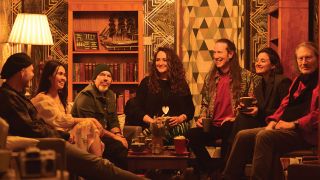
Music aside, there’s also the harsher financial realities of surviving as a progressive band, remaining able to make music and perform live on a regular basis. It’s a struggle that can affect even the big names, but Solstice are proving that with foresight, careful accounting and the backing of loyal fans, they can remain viable as a band.
“Like all other musicians, I still have to earn money and, of course, making original music just doesn’t make any money,” he chuckles. “I’m just devoting myself to try and get us out there and make connections with promoters. Every successful band has someone who is really driven and I’m that man. It’s the first time since the early days that I’ve felt ambitious. I’m motivated because we’re all loving playing together and I think we’re doing our best work. That’s really inspiring for me. It’s also a learning process to try to find ways to make the band sustainable. A lot of people have done a Patreon-style subscription model and we’ve done it too. It’s enough to keep the wheels oiled and we’ve got some fantastic, dedicated supporters. It’s a combination of the right band, the music coming good, someone to drive it and having the community to support it. Of course, it’s still small-time but that’s not the point. We’re making music and people are responding to it in a very rewarding and humbling way.”
That overt optimism has led to a continued flurry of activity, with plans being made for live dates this summer, as well as an appearance at Cropredy 2023 in August. Negotiations are already underway for festival appearances as far ahead as 2025, as well as developing ideas for the writing of another studio album.
“Cropredy is exciting, and they’ve put us on late afternoon, when we may be playing to 15,000 people,” enthuses Glass. “I do think there’s a big audience out there for what we’re doing. It’s just the age-old problem of how you access them. My mission is to keep pushing to build our live profile and presence. I want to get cracking on another album, as I have this dream of doing the Sia trilogy. We had Sia, now we have Light Up and musically they’re connected. I feel this is a new life and the third album is when the band hits the sweet spot. Then we’re going to move on and become really big…”
